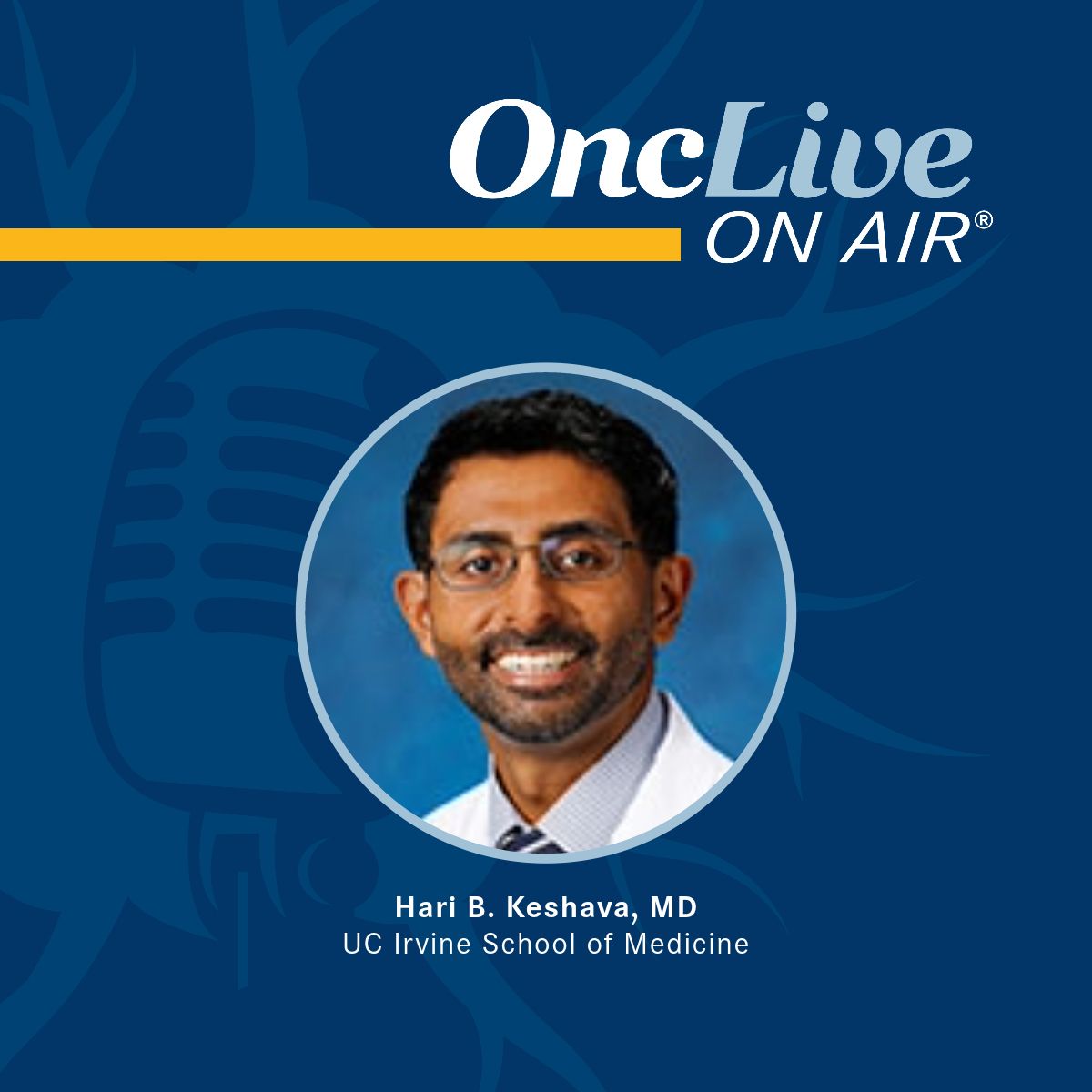News
Article
Dato-DXd Provides Numerical, But Not Significant, OS Benefit in Pretreated Advanced NSCLC
Author(s):
Dato-DXd elicited a clinically meaningful but not statistically significant improvement in overall survival in pretreated, advanced non–small cell lung cancer.
Ken Takeshita, MD

Datopotamab deruxtecan (Dato-DXd) elicited a numerically favorable but not statistically significant improvement in overall survival (OS) vs chemotherapy in the overall population of patients with previously treated, locally advanced or metastatic non–small cell lung cancer (NSCLC) in the phase 3 TROPION-Lung01 trial (NCT04656652), according to findings from the final OS analysis of the study; the OS benefit was clinically meaningful in patients with nonsquamous NSCLC.1
Previous results from TROPION-Lung01 presented at the 2023 ESMO Congress showed that the study met its other co-primary end point of progression-free survival (PFS).2 Notably, based on prior data, the FDA accepted for review a biologics license application seeking the approval of Dato-DXd for the treatment of patients with locally advanced or metastatic nonsquamous NSCLC following prior systemic therapy.3
OS data will be presented at an upcoming medical meeting and shared with regulatory authorities.
"The improvement in OS seen with [Dato-DXd] coupled with the previously reported clinically meaningful PFS [improvement], more than doubling of overall response, and prolonged duration of response compared [with] docetaxel suggest that this TROP2-directed antibody-drug conjugate [ADC] could potentially become an important new treatment for patients with nonsquamous NSCLC in this advanced, metastatic setting,” Ken Takeshita, MD, global head, R&D, Daiichi Sankyo, stated in a news release.1 “These [OS] data will support our ongoing discussions with regulatory authorities globally to potentially bring Dato-DXd to patients as quickly as possible and mark another step forward in creating new standards of care for patients with cancer.”
Previous findings from TROPION-Lung01 showed that in the overall population, Dato-DXd (n = 299) demonstrated a statistically significant improvement in PFS vs those treated with docetaxel (n = 305; HR, 0.75; 95% CI, 0.62-0.91; P =.004).2 Patients in the overall population treated with Dato-DXd experienced a median PFS of 4.4 months (95% CI, 4.2-5.6) vs 3.7 months (95% CI, 2.9-4.2) for those given docetaxel.
Additionally, a PFS benefit was observed in patients with nonsquamous NSCLC treated with Dato-DXd (n = 229) vs those given docetaxel (n = 232; HR, 0.63; 95% CI, 0.51-0.78). The median PFS was 5.6 months (95% CI, 4.4-7.0) in the Dato-DXd arm vs 3.7 months (95% CI, 2.9-4.2) in the docetaxel arm.
Dato-DXd is an investigational TROP2-directed ADC that consists of a humanized anti-TROP2 IgG1 monoclonal antibody linked to multiple topoisomerase I inhibitor payloads. The ADC is currently being investigated in the treatment of various cancers, including NSCLC, triple-negative breast cancer, and hormone receptor–positive, HER2-negative breast cancer.1
TROPION-Lung01 assessed the efficacy and safety of Data-DXd compared with docetaxel in adult patients with locally advanced or metastatic NSCLC, both with and without actionable genomic alterations, who required systemic therapy following previous treatment. Patients with known actionable genomic alterations received prior treatment with platinum-based chemotherapy and an approved targeted therapy. Those without actionable genomic alterations were previously administered platinum-based chemotherapy and a PD-1 or PD-L1 inhibitor, either in combination or sequentially.
In addition to the dual primary end points of PFS by blinded independent central review (BICR) and OS, key secondary end points included investigator-assessed PFS; BICR- and investigator-assessed objective response rate, duration of response, time to response, and disease control rate; and safety.
Updated safety data from the final OS analysis showed that the profile of Dato-DXd remained consistent with previous analyses, which included fewer dose reductions or discontinuations due to adverse effects compared with docetaxel. No new safety concerns were identified, and no new interstitial lung disease events of any grade were adjudicated as drug related.
“[Dato-DXd] is the only investigational therapy to show a clinically meaningful survival improvement in patients with previously treated nonsquamous NSCLC vs docetaxel, which has long been unsurpassed in this post-targeted treatment and post-immunotherapy setting,” Susan Galbraith, MBBChir, PhD, executive vice president, Oncology R&D at AstraZeneca, added in a news release. “These results reinforce the potential for [Dato-DXd] to replace conventional chemotherapy in this late-line setting and underscore our confidence in ongoing trials evaluating this therapy in first-line lung cancer.”
References
- Datopotamab deruxtecan showed clinically meaningful overall survival improvement versus chemotherapy in patients with advanced nonsquamous non-small cell lung cancer in TROPION-Lung01 phase 3 trial. Press Release. Daiichi Sankyo. May 28, 2024. Accessed May 28, 2024. https://www.daiichisankyo.com/files/news/pressrelease/pdf/202405/20240527_E.pdf
- Ahn MJ, Lisberg A, Paz-Ares L, et al. Datopotamab deruxtecan (Dato-DXd) vs docetaxel in previously treated advanced/metastatic (adv/met) non-small cell lung cancer (NSCLC): results of the randomized phase 3 study TROPION-Lung01. Ann Oncol. 2023;34(suppl 2):S1305-S1306. doi:10.1016/j.annonc.2023.10.061
- Datopotamab deruxtecan biologics license application accepted in the US for patients with previously treated advanced nonsquamous non-small cell lung cancer. News release. AstraZeneca. February 19, 2024. Accessed May 28, 2024. https://www.astrazeneca.com/media-centre/press-releases/2024/fda-accepts-dato-dxd-bla-for-nonsquamous-nsclc.html









